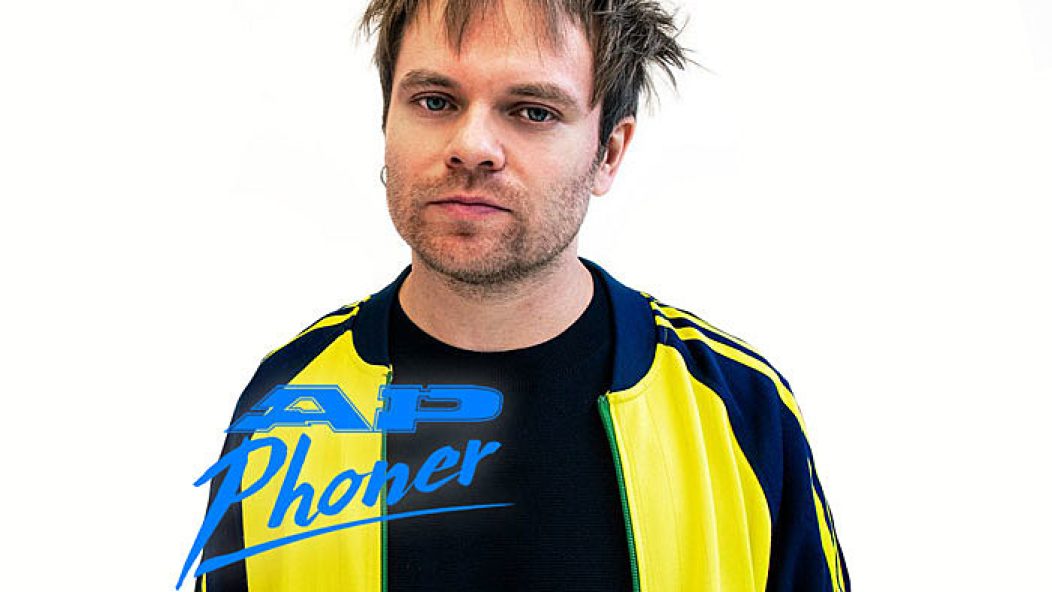
Enter Shikari’s Rou Reynolds wants to help you meditate on things
Most bands talk a good game, but Enter Shikari are truly a work in progress. From the early “rave-core” action found on their 2007 debut, Take To The Skies, to the seasoned alt-rock band they’ve become, the quartet’s penchant for forward thinking has remained in motion. As does Rou Reynolds‘ altruistic position.
In this episode of AP Phoner, AltPress Content Director Paige Owens and Enter Shikari frontman Reynolds discuss how everything happens when nothing happens. The band’s new album, Nothing Is True & Everything Is Possible, is a new step from the strident, existential alt-rock from 2017’s The Spark. Reynolds is forthright about his post-pandemic experiences. You can watch the whole interview above.
Read more: 10 modern musicians keeping the political conversation alive
In both art and life, Reynolds has conveyed a sense of empathy that connects with Enter Shikari fans. In the excerpt below, he discusses with Owens how important mental health awareness is to him. He addresses the emphasis on modern culture places on physical health and fitness but wonders why psychological issues are off limits.
You create an album, you release the album, you go on a tour, you connect with the fans, you get the fans connected with the new music. How drastic has this album cycle been not being able to do the things that are just normal to you?
ROU REYNOLDS: It’s just been so surreal. I haven’t gone this amount of time without seeing the rest of the band members since, like, 2005. It’s just really odd. Not being able to celebrate the album release with them was frustrating. I think our management, our whole team… it’s been a real cocktail of emotions. Because obviously, I’m excited that finally the music is being released into the world because it’s something that we put our heart into for the whole of 2019. More time and effort went into making this album than any of the others. So I’m super excited to bring it out and get people’s reactions and let it out into the world.
Read more: Enter Shikari unpack their psychic baggage at “{The Dreamers Hotel}”
But then at the same time, I felt a bit of guilt because it’s like I shouldn’t be excited right now about anything. We’re in the middle of a pandemic. Like, “People are dying. How dare you?” Because I had this niggling guilt thing. And then I had the frustration of not being able to meet people that support a band like I do, even as an introvert. I enjoy the connection I feel with people through music. So, yeah, there’s just all these weird emotions, and it just makes the situation even more awkward.
You released this incredible album, and fans have it now. How are you connecting with them despite all of the difficulties that we’re facing?
The same way everyone else is. You know, we’re on social media. We’re doing livestreams all the time. One of the things I’ve done, which I guess is a bit slightly different, slightly esoteric, but I think it’s been helpful to a lot of people, is live guided meditation. That’s been really fun. I just think at the moment when we’re in this period where our lives have all dramatically changed very, very suddenly, it can have all sorts of effects on our mental health often without even knowing it really is its own sort of subconscious levels. Just revealing and talking about all my experiences with mindfulness meditation over the past six years that I’ve been doing and then running a little guided exercises in my practices for everyone. That’s been really enjoyable. It feels just like a way to connect that’s also slightly different from just answering questions or playing gigs. I think this is a good tool that people can use. So it’s been nice to be able to share it.
Read more: Enter Shikari want us to “Stop The Clocks” with new single
That’s a great way to get back to the fans, though, without putting anyone in jeopardy. You’re being helpful and giving them something that’s not just music or an interview. You’re giving them something that can help spiritually guide them to a more sound place.
It’s complete common knowledge that physical health is important. So we exercise, [and] we watch our diet. It’s impossible to doubt the utility of exercise, of physical training. Yet mental training? Well, you know, what does that even mean? No one focuses on that. We should be taught some of these techniques in primary school. I think we are already seeing in different parts of the world that the curriculum is starting to include a bit more training in terms of how to deal with our own minds because we’re all mad. [Laughs.]







